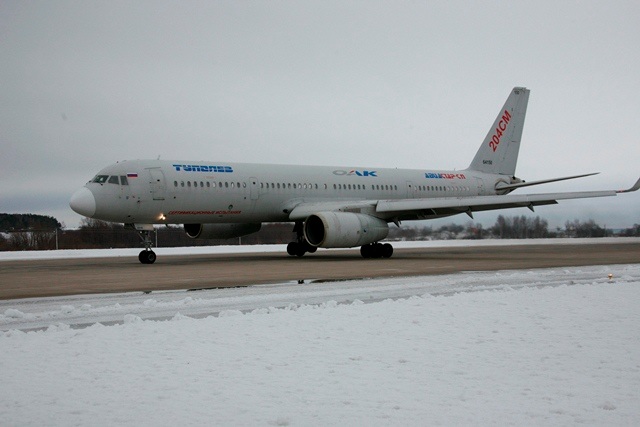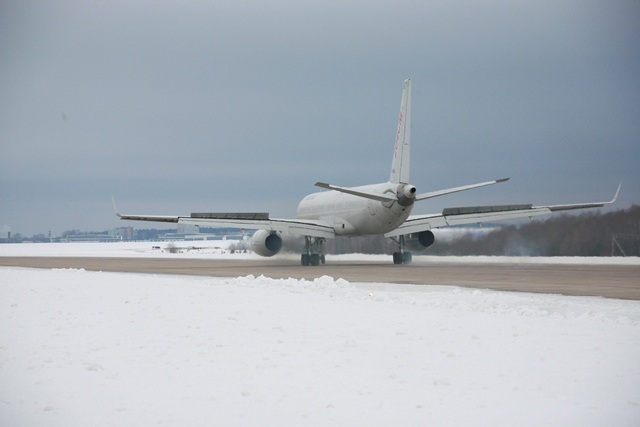Landing tests using a prototype Tupolev Tu-204SM indicate that the crew of an ill-fated Red Wings flight at Moscow could have stopped the aircraft despite the long, late touchdown.
The Red Wings Tu-204 overran Moscow Vnukovo's runway 19 on 29 December after attempting to engage reverse thrust.
Russia's United Aircraft recruited one of the two Tu-204SM certification test aircraft, number 64150, to assist the investigation into the fatal crash. It was fitted with video-recording systems and other measurement equipment.
Pilots performed three approaches during the test programme, bringing the aircraft to a halt on the runway each time. The first approach was to illustrate that the aircraft behaved normally at light weights - the Red Wings flight was only carrying eight people, all crew - and that instructions in the aircraft's flight manual were sufficient to land the twinjet in this state.
But two other approaches involved touching down on just the left main landing-gear, at high speed, and keeping the aircraft in this state to ensure there was no automatic deployment of spoilers.
 |
|---|
 |
|---|
| United Aircraft |
The pilots also simulated the incorrect engagement of the thrust-reversers which resulted in the Red Wings aircraft's accelerating along the runway.
As the Tu-204SM reached a speed of 124kt (230km/h) the test crew manually deployed the spoilers and activated the brakes.
"The landing distance achieved confirmed it was possible to complete the landing on the runway even after the emergency situation and improper actions of the crew during the initial touchdown phase," says United Aircraft.
Tests were carried out both with, and without, the use of reverse thrust. While the Tu-204SM is a modernised version of the type used by Red Wings, the airframer says the two are "almost identical" in the landing phase.
Russia's Interstate Aviation Committee has also been performing a full-scale thrust-reverser control and locking mechanism analysis of the Aviadvigatel PS-90A engine, with another Tu-204 (RA-64050).
Source: Air Transport Intelligence news























